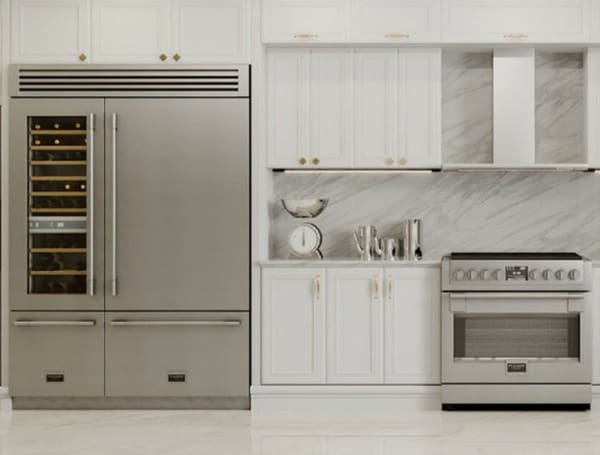The Department of Energy (DOE) finalized some and proposed other regulatory measures to enforce stricter regulations on multiple household appliances on Friday.
The DOE finalized energy efficiency standards for refrigerators and freezers and proposed new regulations to promote “energy efficient” commercial blowers and fans, the agency announced on Friday.
The regulatory actions are the most recent in a series of initiatives undertaken by the Biden administration to replace a variety of energy-consuming appliances that are powered by fossil fuels with their electric counterparts, which are frequently more energy efficient.
“Today’s announcement is a testament to the Biden-Harris Administration’s commitment to lowering utility costs for working families, which is helping to simultaneously strengthen energy independence and combat the climate crisis,” said Secretary of Energy Jennifer Granholm. “DOE will continue to move quickly in 2024—together with our industry partners and stakeholders—to update and strengthen outdated energy efficiency standards, which is critical to innovation, more consumer options, and healthier communities.”
Compliance with the finalized refrigerator and freezer standards will be mandatory beginning in 2029 or 2030, the agency states, depending on the equipment’s model and configuration. According to the DOE, the rule is anticipated to reduce carbon dioxide emissions by over 100 million tons.
The DOE states that the proposed regulations are based on those that are presently operational in California. The regulations, which are scheduled to go into effect in 2029, are anticipated to reduce carbon dioxide emissions by over 300 million tons.
The Biden administration has issued numerous regulatory actions, led primarily by the DOE, in an effort to reduce the use of fossil fuel-powered appliances, which are typically less expensive initially than their “energy efficient” counterparts.
Read: Biden Admin Issues New Rule Targeting Gas Furnaces In Latest Crackdown On Appliances
In an effort to exert control, the administration has also targeted water heaters, portable generators powered by gas, furnaces, and pool pump motors.
Many energy policy specialists have opined that in an effort to combat climate change, the Biden administration’s regulatory assault on appliances will likely restrict consumer options and impose higher initial costs. In contrast, the DOE estimates that over the next three decades, the full suite of energy efficiency regulations will result in consumer savings of approximately $1 trillion.
Residential Refrigerators and Freezers
The efficiency standards being adopted today for residential refrigerators, refrigerator-freezers, and freezers, which have not been updated in over a decade, align with recommendations from a diverse set of stakeholders, including manufacturers, the manufacturing trade association, energy, environmental, and consumer advocacy groups, states, and utilities.
Compliance will be required either January 31, 2029 or January 31, 2030, depending on the configuration of the refrigerator or freezer.
The energy savings over 30 years of shipments is 5.6 quadrillion British thermal units, which represents a savings of 11% relative to the energy use of products currently on the market. DOE estimates that the standards would save consumers $36.4 billion over 30 years of shipments and result in cumulative emission reductions of nearly 101 million metric tons of carbon dioxide—an amount roughly equivalent to the combined annual emissions of 12.7 million homes.
Commercial Fans and Blowers
DOE also released a proposed rulemaking for commercial fans and blowers that would reduce energy costs for American businesses by $3.3 billion annually.
This proposal—the first federal standard for this product—follows the lead of efficiency standards already established by the state of California for general fans, extending savings to consumers nationwide and providing clarity for manufacturers.
If adopted within DOE’s proposed timeframe, the new rule will come into effect in 2029. DOE estimates the new rule will reduce utility costs for American businesses by nearly $56 billion over 30 years of shipments, while reducing carbon dioxide emissions by nearly 318 million metric tons—an amount roughly equivalent to the combined annual emissions of 40 million homes.
Android Users, Click To Download The Free Press App And Never Miss A Story. Follow Us On Facebook and Twitter. Sign up for our free newsletter.
We can’t do this without your help. Visit our GiveSendGo page and donate any dollar amount; every penny helps.

